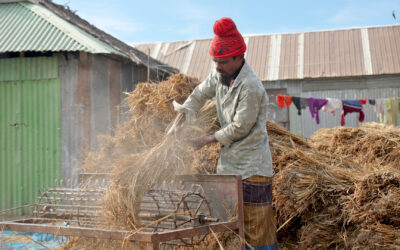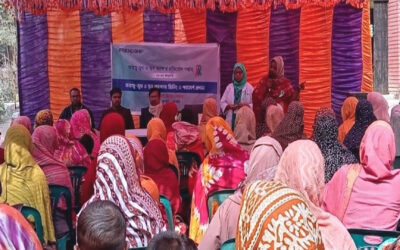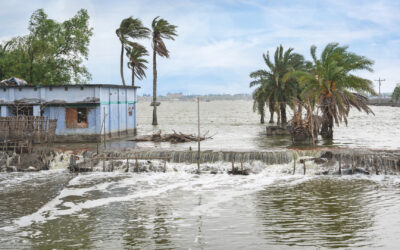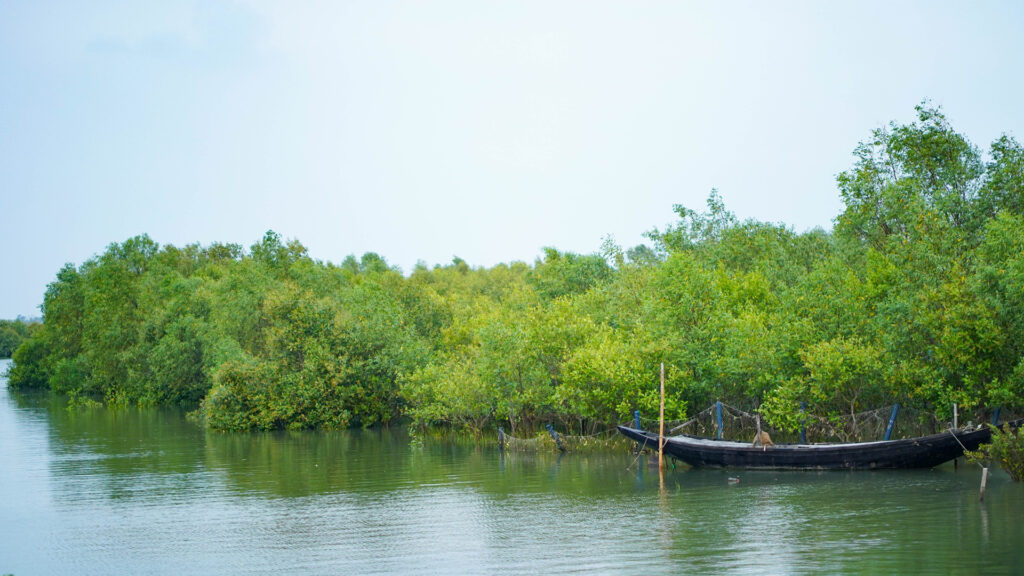
by Stéphane Van Haute and Kazi Amdadul Hoque,
25 May, 2025
In these chaotic times, when the planet’s climatic future seems at stake, suspended on disconnected decisions of certain governments, the international community of those who take climate action on a day-to-day basis can become a benchmark for shaping tomorrow’s world. In this context, it can be interesting to look at the Community-Based Adaptation (CBA) conference, the 19th edition of which was held from 12 to 16 May in Recife, Brazil.
Organised for the first time in South America, this conference was initiated by IIED and its partners, including late Saleemul Huq, when the first edition took place in Dhaka 20 years ago. Every year, a community of climate action practitioners, mostly from civil society and NGOs, but also from academia, bilateral and multilateral government agencies, philanthropy and even the private sector, come together for a vibrant conference. They share and learn about concrete actions helping local communities vulnerable to climate-induced disasters, to contribute to the broader climate adaptation agenda under the UNFCCC mandate.
The conference aims to support the eight Locally-Led Adaptation (LLA) principles, which define how to ensure that local communities are empowered to lead sustainable and effective adaptation to climate change at their local level. At CBA19, the participants discussed how these eight principles are being put into practice by highlighting the best experiences, emerging innovations or challenges, mainly from the Global South, and how these actions can be scaled up. The objective of the conference was to build a collective message to take to COP30, which will take place in Bélem, Brazil, in November 2025.
If the world fails to mitigate global warming – and unfortunately we’re not on a good trend because the main polluters show no inclination to make the colossal efforts needed to reduce their CO2 emissions – we’ll have no choice but to adapt to a world at +2°C or even +4°C in the not too distant future (before 2100). For Bangladesh, this unfortunately means more floods, cyclones and heatwaves. More frequent and more intense disasters. Even a world at +1.5°C – the ambitious target of the Paris Agreement – will require a certain level of adaptation to maintain the cohesion of human societies and communities. Indeed, it is nothing less than organising and preparing now for how humans will be able to meet their basic needs (health, education, food, livelihoods, hygiene, housing, comfort and even culture) in a warmer and more uncertain climate.
At the CBA19, 400 participants working in 63 countries came together to discuss and, dare we say it, build a world where the planet’s most vulnerable local communities can survive and live in peace, on the territories where they have always lived, without having to migrate. With half of the participants coming from regional or local organisations, acting as intermediaries of the communities, they were legitimate to talk about Locally-Led Adaptation and address the main question of the conference: how can we achieve just and equitable adaptation? To make LLA and CBA discussions relevant, interaction is necessary. Everyone should have the right to speak and reflect on the complexity of local contexts. Respect for the diversity of perspectives, including gender justice, anti-racist and decolonial approaches, is crucial to ensure that no one is left behind in the decision-making processes.
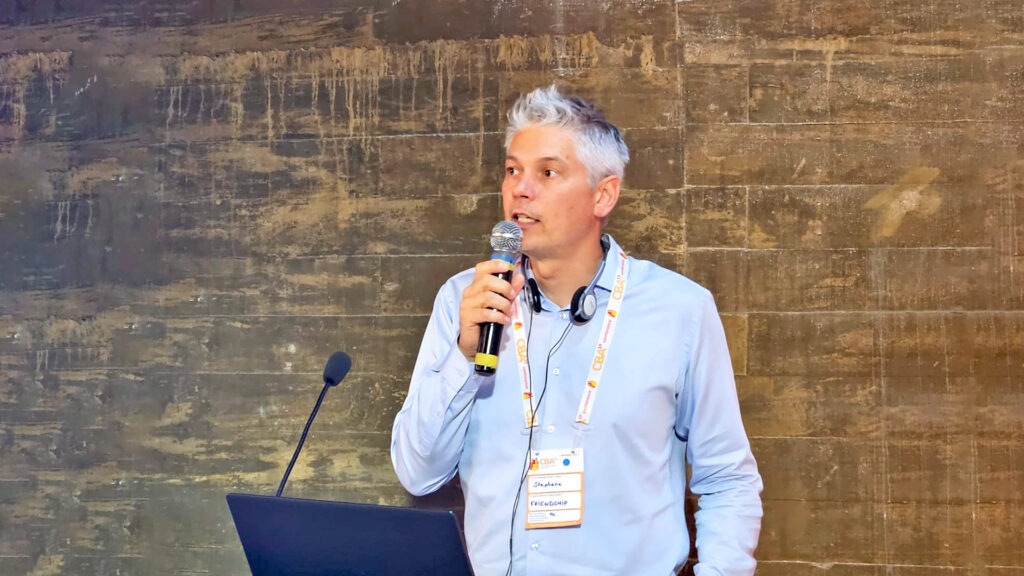
As in every sector of activity, money is key. But here, the LLA advocacy targets more inclusive, flexible and responsive funding mechanisms. Alternative models of fair finance ensure that the maximum amount is channelled directly to the local communities, without sacrificing irreproachable governance and solid accountability. This is a central issue for climate adaptation practitioners, as the needs of local communities will become increasingly important. Numerous reports show that only a very small proportion of international climate finance reaches local communities (some say as little as 17% or even 10%). It is therefore important that actors doing similar work around the world get together, both to improve their own work and to build collective strategies on how to access, influence and motivate investors and donors to invest more in locally-led climate adaptation.
Although many organisations present at the CBA19 highlighted that the true spirit of localisation is still not visible enough. Friendship has shared experiences from Bangladesh and explained how the trust of funders, blended with transparency and flexibility, can create an enabling environment for local organisations to be respectful to communities’ needs and make their voices heard globally. They mentioned the CIDRR (Community Initiated Disaster Risk Reduction) approach developed since 2014, in which the communities assess their situation, design and evaluate their actions themselves (read the study conducted by ICCCAD). A Nature-based Solution, such as a locally-led mangrove afforestation programme in Satkhira District, is another example of effective LLA to protect local communities against cyclones. There are many examples like this by NGOs and CSOs active in Bangladesh that push towards localisation, empowering communities and inspiring self-esteem.
The conference ended on a collective call to the COP30 Presidency and UNFCCC that local voices should systematically be taken into account in climate action to ensure a just and equitable future for all. Beyond the talk, this type of gathering of climate practitioners is blatant proof that all the solutions exist, are realistic, effective and fundable to improve the lives of millions facing the climate crisis. Researchers strongly support the localised approach, and many funders are becoming increasingly convinced because they know that every dollar invested today means 10 or 20 saved on future crises.
We see in this community of CBA/LLA practitioners a credible and structured response to the climate challenges. As Mrs Alice de Moraes Amorim Vogas, Advisor to the COP30 Presidency, told participants in Recife, “we must make climate adaptation more tangible and understandable, not only by raising awareness on the catastrophic climate situation, but also by showing the solutions co-constructed by those who need them most”. That’s exactly what the participants at CBA19 did. When climate adaptation is carried out locally, with trust, responsibility and reliability from all parties, everyone wins.
Note: A version of this article was posted in the Daily Star on 25 May, 2025.

